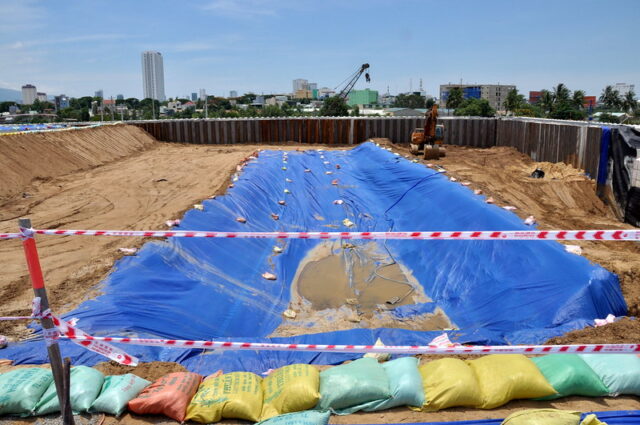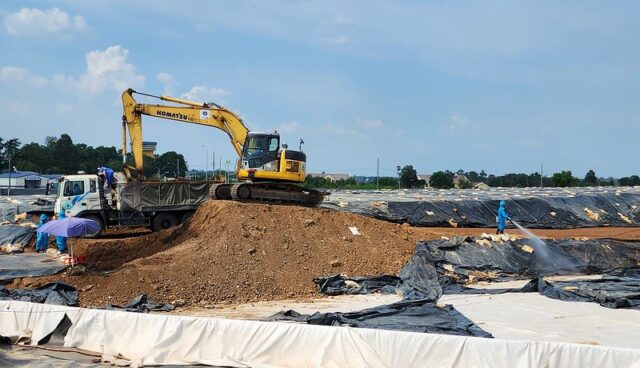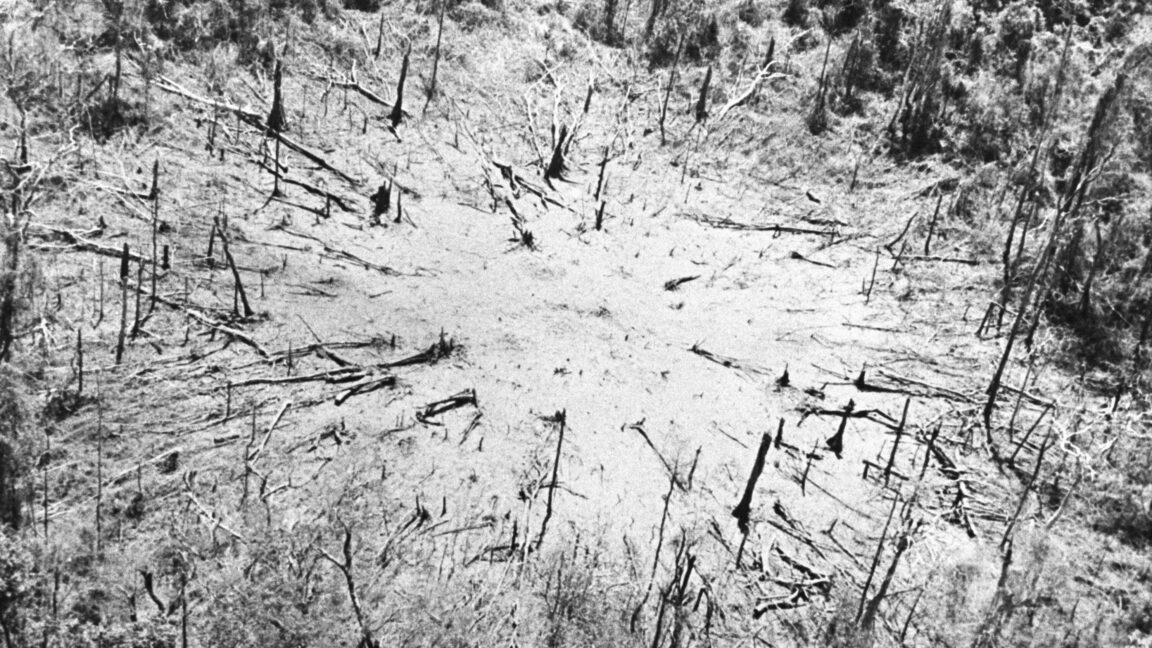
One other main scorching spot is the closely contaminated Biên Hoà airbase, the place native residents proceed to ingest high levels of dioxin via fish, rooster and geese.
Agent Orange barrels had been saved on the base, which leaked giant quantities of the toxin into soil and water, the place it continues to build up in animal tissue because it strikes up the meals chain. Remediation started in 2019; nevertheless, additional work is at risk with the Trump administration’s close to elimination of USAID, leaving it unclear if there might be any American specialists in Vietnam in control of administering this complicated mission.
Legal guidelines to forestall future ‘ecocide’ are difficult
Whereas Agent Orange’s well being results have understandably drawn scrutiny, its long-term ecological penalties haven’t been nicely studied.
Present-day scientists have much more choices than these 50 years in the past, together with satellite tv for pc imagery, which is being used in Ukraine to determine fires, flooding, and air pollution. Nonetheless, these instruments can not exchange on-the-ground monitoring, which regularly is restricted or harmful throughout wartime.
The authorized scenario is equally complicated.
In 1977, the Geneva Conventions governing conduct throughout wartime had been revised to ban “widespread, long run, and extreme injury to the pure setting.” A 1980 protocol restricted incendiary weapons. But oil fires set by Iraq during the Gulf War in 1991, and up to date environmental injury in the Gaza Strip, Ukraine, and Syria point out the bounds of counting on treaties when there aren’t any robust mechanisms to make sure compliance.

An international campaign at the moment underway requires an modification to the Rome Statute of the International Criminal Court to add ecocide as a fifth prosecutable crime alongside genocide, crimes in opposition to humanity, conflict crimes, and aggression.
Some international locations have adopted their very own ecocide laws. Vietnam was the primary to legally state in its penal code that “Ecocide, destroying the pure setting, whether or not dedicated in time of peace or conflict, constitutes against the law in opposition to humanity.” But the legislation has resulted in no prosecutions, regardless of a number of giant air pollution instances.
Each Russia and Ukraine even have ecocide legal guidelines, however these haven’t prevented hurt or held anybody accountable for injury throughout the ongoing battle.
Classes for the long run
The Vietnam Battle is a reminder that failure to deal with ecological penalties, each throughout conflict and after, could have long-term results. What stays briefly provide is the political will to make sure that these impacts are neither ignored nor repeated.![]()
Pamela McElwee, Professor of Human Ecology, Rutgers University. This text is republished from The Conversation beneath a Inventive Commons license. Learn the original article.

